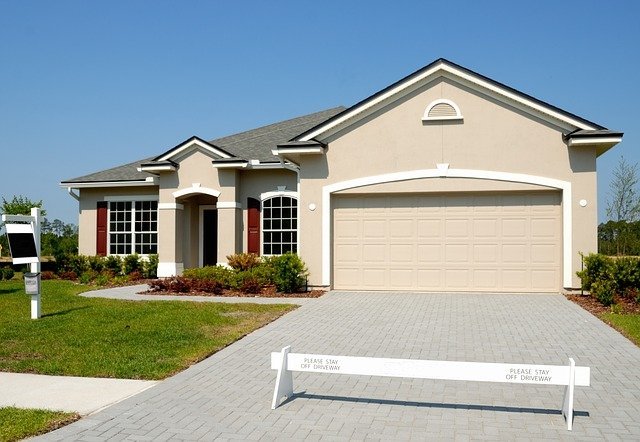Home Mortgage
Answers To Common Home Mortgage Questions

Home mortgages are an essential part of home owners. The process of obtaining a loan can seem overwhelming if you are uneducated about it. Learn about mortgages before ever applying for a loan.You’ll be happy you did.
Pay down the debt that you already have and don’t get new debt when you start working with a mortgage. A high level of debt could cause your loan to be denied.Carrying some debt could cost you financially because your mortgage rates.
Even if you are underwater with your mortgage, the new HARP regulations can help you get a new loan. Until the introduction of this program, it was nearly impossible for many homeowners to refinance. Check the program out to determine what benefits it will provide for your situation; it may result in lower monthly payments and a higher credit score.
Don’t go charging up a storm while you wait for your mortgage to close. Lenders tend to run another credit check before closing, and they could change their mind if they see a lot of activity. Wait until after you have closed on your mortgage before running out for furniture and other large expenses.
Know what terms before trying to apply and be sure they are ones you can live within. No matter how good the home you chose is, if it leaves you strapped, you will wind up in trouble.
Make sure that you always keep in touch with your lender, regardless of how dire your finances ever get. You may feel like giving up on your mortgage if your finances are bad; however, many times lenders will renegotiate loans rather than have them default. Contact your lender and inquire about any options you might have.
Make sure your credit is good order before applying for a mortgage. Lenders often examine your credit history very closely to make sure that you are not a bad risk. If your credit is poor, do whatever it takes to fix it so your loan is not denied.
Make sure that you collect all your personal financial documentation prior to meeting with a home lender. Your lender is going to require income statements, some bank statements and some documents on your different financial assets. Being organized and having paperwork ready will help speed up the process and allow it to run much smoother.
You will most likely have to pay a down payment when it comes to your mortgage. In today’s world almost all mortgage providers will require down payments. Ask how much the down payment is before you submit your application.
Ask people you know for information on obtaining a home mortgage. They may be able to provide you with some advice that you should be looking for. You may be able to avoid any negative experiences they have had.
Figure out the mortgage is best for you. There are several different types of mortgage loans. Knowing all about different loan types of mortgages and comparing them makes it easier to decide on the best decision for your situation. Talk to your lender about the various mortgage options.
Adjust your budget so as to not pay out more than a third of your monthly income to a mortgage note. Spending too much in the mortgage can cause financial instability in the long run. Your budget will stay in order when you manage your payments well.
Think about more than banks for a mortgage loan. You may also check out credit unions that tend to offer terrific rates. Think about your options available when choosing a home mortgage.
Many times a broker is able to find a mortgage that will fit your situation better than these traditional lenders can. They work with many lenders and can help you make the best decision.
As a first-time homebuyer, you may qualify for government programs. There are programs to help those who have bad credit, programs in reducing closing costs, and ones for lowering your interest rate.
Learn about the costs associated with getting a home loan. There are so many strange line items involved in closing a loan. It can feel overwhelmed and stressed. But, by doing some legwork, you can negotiate a lot more easily.
If you don’t mind paying more on your mortgage payment, consider a 15 or 20 year loan. These short-term loans come with a lower rate of interest and monthly payments that are slightly higher in exchange for the shorter loan period. You might be able to save thousands of dollars by doing this.

Find out what the historical property tax rates are on the house you plan to buy. You must be aware of the cost of taxes prior to signing your mortgage papers. Your property may be assessed at a higher value than you’re expecting, which can make for a nasty surprise.
A high credit score is important for getting the best mortgage rate in our current tight lending market. Check your credit report from the 3 bureaus to make sure there aren’t any errors. Many banks stay away from credit scores under 620.
Many sellers just want out and will help you out.You will end up making two payments each month, but this could help you get a mortgage.
Find a low rate. The bank wants to give you the highest rate. Don’t fall victim to this. Be sure to shop around so that you have a few options that you can pick from.
Closing Costs
There is more to choosing a mortgage than comparing interest rate. Different lenders tack on different types of fees.Consider closing costs, the loan type and all closing costs. Get quotes from several lenders before you make a decision.
If your mortgage has a 30 year term, you should think about paying an extra payment each month. That additional money will go towards the principal on your loan. Making an extra payment often gets your mortgage paid off faster and saves you money on interest.
If a lender approves you for a larger amount than what is affordable for you, you’ll have some extra room. This can cause financial trouble down the road.
Consider taking out a home mortgage that lets you make your payments every other week. This lets you make an additional two payments and reduces the time of the loan. It can be great idea to have payments can just be taken from your account.
Do not let a single mortgage denial keep you from searching for a mortgage. One lender denying you doesn’t mean that they all will. Check out all of the options and apply to those which best suit you. You might need to recruit a co-signer, but you will likely find a mortgage you can handle.
Be careful before you sign a loan that comes with prepayment penalties. If you have excellent credit, you don’t have to accept this type of loan. Having the ability to pre-pay allows you to save on interest payments. Don’t give it up without further thought.
Some lenders reward loyal customers with better rates and other perks to long-time customers.
Check out a minimum of three (and preferably five) lenders before you look at one specifically for your personal mortgage. Check out reputations with people you know and online, along with any hidden fees and rates within the contracts. When you know this information, you’ll make a choice more easily.
Check your local public library for some books on mortgages. A variety of books contain information about the home mortgage purchasing process.
It’s a great accomplishment to own your very own home. But, if you wish to won a house, a lot of the time you may need a loan. Don’t let yourself not get the best deal possible by following this advice. Use these tips to get the best mortgage ever.
Before you start the loan process, do all you can to lower your debts. Taking on a home loan is big responsibility and lenders want to assure you can afford to pay. Making sure to carry as little debt as possible will help with that.


